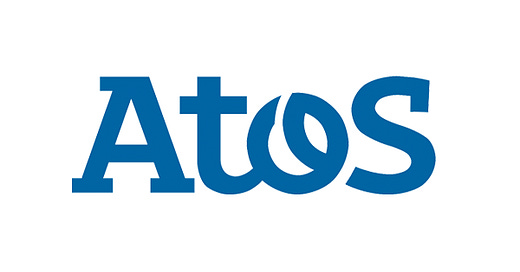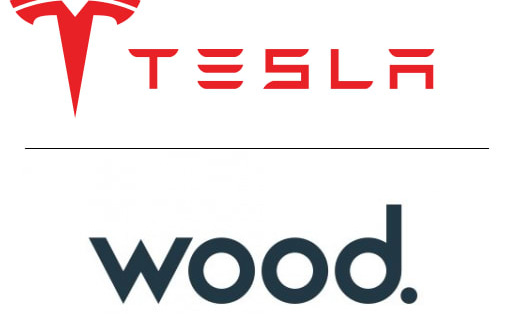Disclaimer
Value Situations is NOT investment advice and the author is not an investment advisor.
All content on this website and in the newsletter, and all other communication and correspondence from its author, is for informational and educational purposes only and should not in any circumstances, whether express or implied, be considered to be advice of an investment, legal or any other nature. Please carry out your own research and due diligence.
ATOS Splitting Into Two Separate Public Companies
Previous Quick Idea name ATOS SE (ATO.FP) announced last week that it was splitting into two separate public companies to unlock value for shareholders as part of its 2022 Capital Markets Day presentation. The proposed break-up is being structured as a spin-off of the Big Data, Cybersecurity and Digital services segments into a separate French listed company to be named Evidian. The remaining legacy IT infrastructure and services business will remain listed as ATOS, and will own 30% of the new Evidian SpinCo post-spin.
The announcement also included the news that CEO Rodolphe Belmer would is stepping down, despite only being in the role since January. Belmer’s departure is reportedly due to his disagreement with the board over the future plan for ATO’s crown jewel, the big data/cybersecurity segment (BDS), which Bellmer reportedly was open to selling but which the board wanted to retain. Recall that the BDS segment was recently subject to takeover/break-up speculation involving fellow French-listed peer Thales (HO.FP) and private equity bidders (as I previously wrote about here and here).
The split is projected to happen in 2024 following a ~18 month transformation plan to prepare the BDS and Digital businesses for spin-off, and to turnaround the challenged legacy IT business.
The market’s reaction to this news was decidedly negative, with ATO’s share price dropping ~23% following the announcement, and dropping a further 12% following the additional news a few days later that CFO Stéphane Lhopiteau was also stepping down. These latest events cap off a tumultuous ~24 month months for ATO, with its share price down -83% since the beginning of 2021, reflecting a string of disappointments including the failed acquisition of US peer DXC Technologies (DXC), accounting irregularities, profit warnings and most recently, further lowered guidance (prior to last week’s break-up news).
At the current share price of ~€12.40/share, ATO is trading at ~3.7x LTM EBITDA / ~4x NTM EBITDA, below its historic average multiple of ~6x, and well below multiples for better performing peers such as Capgemini at ~10x, Accenture at ~14x and Infosys at ~16x NTM EBITDA. It’s also worth noting that Thales’ recently reported interest in the BDS unit indicated a ~10x multiple (~€2.5bn) for that segment alone.
Value Sits View
Given the consistent underperformance and recent turmoil at the company, ATO’s board have been under pressure to do something to turnaround the business and the stock’s performance. Recent events have made ATO ripe for an aggressive activist campaign which would likely have involved the board being compelled to do something it wouldn’t like (most likely a sale of BDS, as well as board member replacements). In that context the board’s move to spin-off BDS and Digital services is a halfway measure, in that ATO will retain 30% ownership of the more valuable and faster growing BDS unit.
So what’s the potential value situation here?
The reality is that ATO has been a disastrous investment in recent years, and there are real questions regarding management’s ability to deliver on what is an ambitious, and back-dated turnaround plan for the legacy business, as well as doubts over the board’s stewardship with regard to shareholder interests. But lets assume the transformation plan will work and BDS/Digitial Services are spun-off as outlined in the investor presentation. In such a scenario, I see the initial value situation here as follows:
Starting with the Evidian SpinCo, the BDS/Digital Services units generated EBITDA of ~€490m in FY21; assuming a 10x multiple in line with Thales recent interest in BDS, this implies an EV of ~€4.9bn which is ~2x ATO’s current EV of €2.6bn; furthermore, this unit requires an investment of ~€400m to fund interim growth and margin acceleration plans over next ~5 years, so lets conservatively deduct this from the PF EV of ~€4.9bn to reflect the fact that an acquirer would factor this into any bid, resulting in a SpinCo valuation of €4.5bn today (or ~1.7x ATO’s entire EV currently).
The remaining RemainCo IT business generated EBITDA of ~€225m in FY21, however it was significantly cash-flow negative (-€500m), and a return to profitability isn’t expected until 2025; furthermore, it will require an investment of ~€1.1bn over the next 5 years to turnaround operations, while revenues are expected to decline from ~€5.4bn in FY21 to a turnaround trough level of €4.1bn in FY24 at the time of the spin (reflecting wind-down of old contracts, stabilisation of business etc). Given the challenges facing this segment and the (current) lack of earnings visibility I value this at an EV/S multiple of 0.3x 2024 trough revenues, or ~€1.2bn, and deduct the €1.1bn turnaround investment required, implying a value of ~€100m today for the RemainCo business. The 0.3x EV/S multiple assumed here simply reflects ATO’s current overall EV/S multiple, which essentially prices in all the issues facing the company and I think appropriately discounts the time, effort and capital required for the turnaround.
Combining the above segment valuations and backing out net debt and minority interests implies a current equity value of ~€3.4bn, or ~€31/share, or 2.5x ATO’s current share price:
Source: Value Situations.
It could be argued that the implied upside above is conservative in that it ignores future growth in the Evidian spin-off, and post-turnaround earnings power in the remaining ATO RemainCo business. However, it’s important to emphasise there is meaningful risk to this situation - management’s track record has been terrible, there execution risk with an ambitious turnaround, significant further investment is required could overrun, and there remains the potential for further underperformance and cash burn in the legacy business.
That said, ATO is a politically and strategically important player in the French corporate landscape, holding contracts with France’s atomic agency and government departments and so is unlikely to be allowed fail. Of course the other side of this coin is potential political interference risk, but I think it can be argued that the current valuation already prices this in.
In summary, with the split/spin-off plan and a very depressed share price, ATO is perhaps the most interesting it’s been since I first wrote about it. My current view is that ATO’s current share price offers the valuable BDS/Digital SpinCo at a discount to its private market value plus a free option on the legacy business being turnaround over the next 5 years.
Any Other Business
For this week’s AOB I’m highlighting John Collison’s excellent interview with Stanley Druckenmiller from this year’s Sohn Conference 2022 . The interview covered a broad range of topics including inflation, crypto, the macro outlook, position sizing and the equity markets among other items. But one quote from Druckenmiller stood out for me, in the context of my recent concerns around the high yield credit market:
"Once inflation gets above 5% it's never come down unless fed funds have gotten above the CPI. Well since the CPI is 8% that would call for a Fed Funds rate of above 8%. Frankly I don't think we'll get there because the extent of the asset bubble and the damage that would be done. Think about the fact that we have virtually no bankruptcies.”
This is a very relevant point at the current juncture, given that both rates and inflation are set to continue to rise (or at least remain persistently elevated in the case of inflation in my view), and central banks cannot step and support credit markets as they did during the GFC and COVID given the inflationary forces at work.
The implications of this are contracting margins and cash-flows among highly levered corporates given structurally higher operating and financial costs, which suggests a spike in defaults and bankruptcies looks increasingly likely.
Why Not Subscribe to the Paid Tier?
If you find the ideas in this newsletter interesting, please considering signing up to the newly launched Paid Tier.
You can read more about the paid offering here.
This newsletter is 100% reader supported and free from conflicts of interest or other commercial considerations. In writing Value Situations my job is essentially to generate ideas for subscribers that supplements their own idea origination process.
Furthermore, I believe the value proposition for paying subscribers is compelling. I am a former private equity/special sits investor that has worked with one of the largest alternative investment firms in the world, and so paying subscribers will be getting thoughtful, buy-side quality ideas and analysis for a very small fraction of the cost of employing a buy-side analyst full-time.
If you find this newsletter interesting, please also consider sharing it with friends and colleagues by clicking the Share button below.
Here’s what other investors are saying about Value Situations:






Value Situations was named as one of the Top 100 Must Follow Stock Research accounts by Edwin Dorsey of The Bear Cave Newsletter:


















